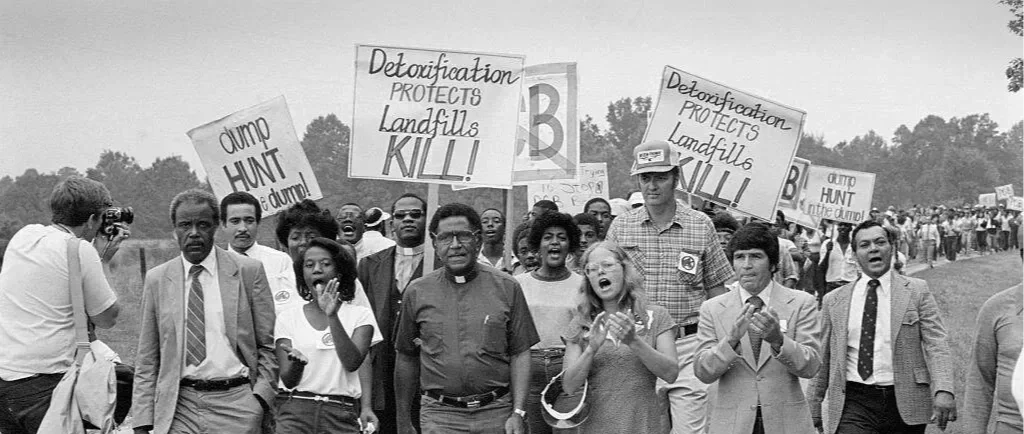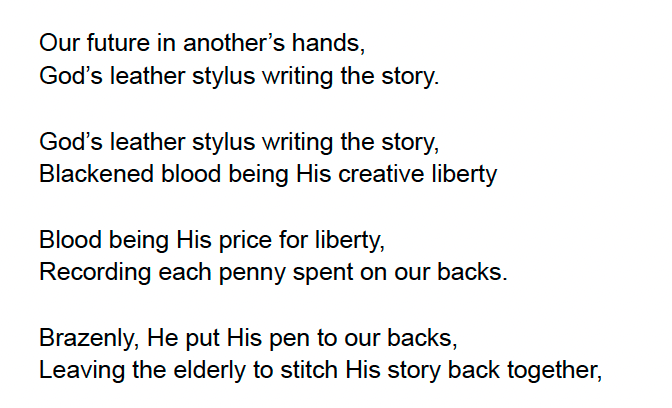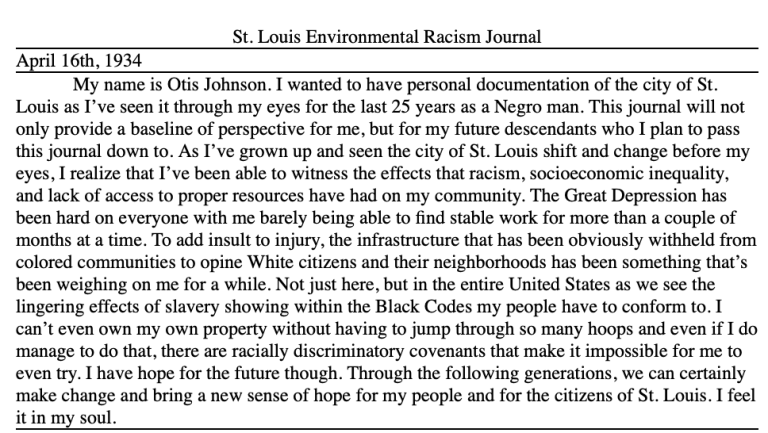
FREE THE LAND: Histories of Environmental Racism in the United States
FREE THE LAND introduces students to the study and discussion of environmental racism and environmental justice in the United States that centers the stories and experiences of communities of color.
Environmental racism is defined by Dr. Robert Bullard (“the Father of Environmental Justice'') as “any policy, practice or directive that differentially affects or disadvantages (where intended or unintended) individuals, groups or communities based on race.” This course expands and illuminates this definition through examinations of watershed moments—from the Transatlantic Slave Trade to local struggles today—in which communities of color the United States bear the deadly brunt of toxic fumes, poisoned groundwater, nuclear waste, perilous disaster work, land theft, and the slow violence of biological extermination. Throughout the semester, students read scholarly texts, engage primary sources, analyze popular and independent media, and study testimony and self-published materials from activists and eyewitnesses.
FREE THE LAND is a signature undergraduate course designed by Dr. Robin McDowell. It has been offered at 3 institutions, with over 50 students successfully completing the course.
The Timeline Project
The final assignment is a timeline project that serves as a connecting thread. As we move through lectures, readings, discussions, and media analysis, students create imagery, gather quotes, interpret primary sources, and incorporate multimedia content.
We also unpack the concept of a “timeline.” We examine zines, performance art, infographics, family trees, and pedagogy tools. We learn that decisions about content organization and visual design elements make arguments.
The final timelines are the culmination of study, actions, and reflections as individuals and a class on how the semester changed, enriched, and/or affirmed understandings of environmental racism, environmental justice, and histories of people of color. Together, we leave a record of our perspectives, ideas, and evidence for future generations.
Selections from The Class of 2021
-

Tori Harwell / Meditations on Environmental Racism from a Black Femme Queer
-

Rachel Paulk / la terre et tous ses sentiments (the land and all its feelings)
-

Jalen Walker / Vermilion Zine: Black & Indigenous Efforts to Free The Land
-

Jade Pita / Emancipating Education Art Portfolio
-

Jermicah Lott / Intercommunalistm
-

Caleb Saffold / Livingness Poems
Selections from The Class of 2022
-

Kai Radford / River Des Peres and The History of Flooding in University City, St. Louis (Art installation)
-

Lucia Joseph / DISCONNECT: A Timeline/Zine
-

Leandrea Clay / Charcoal Lungs: Black Resistance to Environmental Racism (Poetry Book)
-

Allison Greathouse / The Art Book of Environmental Justice (Mixed media scrapbook)
-

Will Smith Jr. / Profit Over People: Environmental Racism Through the Lens of Oil and Pipelines in the 21st Century
-

Mike Lu / Letters to the Citizens of the United States
-

Nash Overfield / Free This Land
-

Darian Dickerson / St. Louis Environmental Racism Journal
-

RL Wheeler / TIME AS PHENOMENOLOGICAL: A SOUNDSCAPE OF ENVIRONMENTAL RACISM AND ENVIRONMENTAL JUSTICE
-

Belise Nishimwe / Poem series
-

Will Slatin / “Who Gets To Enjoy Nature?” (Interactive map)
Selections from The Class of 2024
-

Laine Gorman / Intersectionality & Ecological Succession: An Environmental Justice Timeline
-

Quinn Pierce / Landscapes of Freedom: Assassin's Creed Black Flag Digital Exhibition
-

Mason Rounds / Environmental Justice, Wesleyan University, and YOU: A Brief History (Zine)
-

Ellen Ryan / Women Speak Out: Ecofeminist Poetry Collection (mixed media sculpture)
-

Avanthi Chen / Disrupting the Image of "The (white) Farmer" in Connecticut
-

Chika Oyigbo / The Intersection Between Black Hair & The Environment
-

Melanie Glatter / Fruit Triptych: Reimagining WPA Murals in California